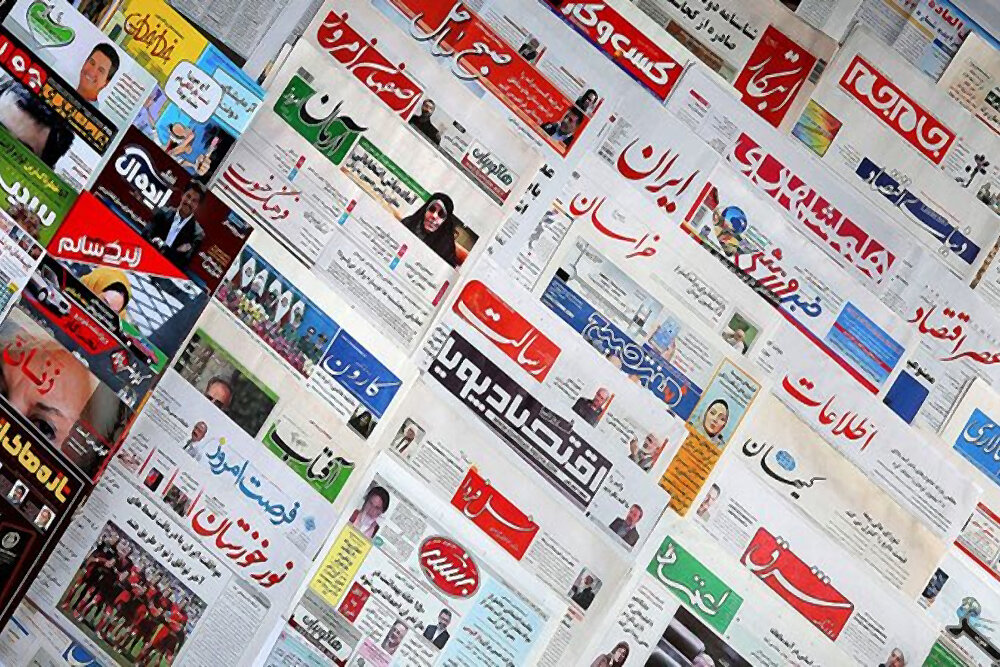Saudi Arabia's new game in Africa

TEHRAN- Saudi Arabia is seeking a presence in African countries, especially Kenya, Tanzania, and Uganda, to diversify its partners, the Etemad newspaper wrote.
In line with this policy, Riyadh is pursuing the following goals: Exploiting the geopolitical capabilities of these countries, promoting Wahhabism, attracting experts for its oil industry, guarantee its food security, etc.
The geopolitical situation of Tanzania, Uganda, and Kenya are of importance to Saudi Arabia as the three have access to high seas.
Crown Prince Mohammed Bin Salman also plans to build mosques and universities under the guise of cultural activities to promote Saudi influence, as there are Muslim minorities in all three countries. In this way, Saudi Arabia can also effectively promote Wahhabism in these countries.
For its oil industry, Saudi Arabia needs African skilled workers. Kenya, Uganda, and Tanzania are the countries that send migrant workers.
Riyadh is also trying to use these countries' fertile lands to produce crops to counter possible food insecurity.
Arman-e Melli: Let's follow JCPOA more seriously
In an article, Arman-e Melli points to the necessity of revitalizing the nuclear agreement, aka JCPOA, between Iran and the West, writing: Neither Iran nor other countries will not give up revitalizing the JCPOA.
As time goes by, the West raises more questions, but Iran should enter into negotiations with new professional negotiators before the time is over. The new team should have two characteristics: First, they should be expert on the issue, and second, they have to have authority and have to be more open-handed.
Of course, the recent positions of the European governments regarding Iran are greatly influenced by public opinion, but it does not mean that they cannot fully return to the JCPOA revival negotiations.
On the other hand, European countries' approaches towards Iran are much tougher than the United States. But regarding the pressure on Iran, the U.S. and the Europeans are unanimous to increase the pressure on Teran.
Although it is said that there are concerns about referring Iran's case to the Security Council, if Iran is serious about the negotiations to revive the JCPOA, the West still has not closed the doors to the negotiations.
Kayhan: Sympathy for dead wood or fear of hitting the Western spy network?!
The hysterical and nervous reaction of Westerners to the execution of a spy is out of fear that Iran succeeded to deal a blow to the Western espionage network inside Iran rather than sympathy for a dead wood.
The arrest and execution of Alireza Akbari, a dual Iranian-British citizen who spied for Britain’s MI6, has angered British officials, and in the past two or three days, from the prime minister to the foreign secretary and TV networks protested the execution hysterically and nervously.
Also, the reaction of other Western countries, including the United States and France, and Joseph Borrell, the European Union foreign policy chief, was also exciting.
The nervous reaction of the Westerners to the execution of the spy on one hand shows Iran's power in the intelligence war with the West, and on the other, more than sympathy for a lost cause, the West is afraid and worried about the attack on their espionage network inside Iran.
Arman-e Emrooz: Russians are giving blood, Turkey is benefitting
In an article, Arman-e Emrooz refers to some developments in Central Asia and the Caucasus and writes: The Ukraine war has created many new situations in recent months in a way that put all the possibilities of the coming years in doubt.
It writes: By taking the office in Armenia by Nikol Pashinyan, a pro-West politician, Baku's army started a war with Armenia, and in few weeks, it took back important parts of the areas it had previously lost.
The daily also refers to Russia's Putin silence against Baku's excesses due to the start of the war in Ukraine and Erdogan's use of Russia's problems, saying: When all the attention was focused on Ukraine, the Azerbaijani army launched attacks on the borders of Armenia.
The Republic of Azerbaijan blocked Lachin Corridor to put pressure on the Armenians. Lachin is the only way for Armenia to communicate with Armenians in Karabakh.
Many believe that Baku has taken Lachin hostage to connect to Nakhchivan through Zangezur, which is also Erdogan's wish, and it seems that Armenia has also agreed to provide Baku with a special railway line and highway to connect to Nakhchivan.
But it seems that Baku wants more and has actually drawn a plan for the southern part of Armenia with the help of Turkey but they face a big obstacle and that is IRAN.
Shargh: UK wants to activate trigger mechanism unilaterally
The former ambassador of Iran in London points to the anti-Iran actions of Britain in recent months, especially after the execution of Alireza Akbari, arguing that Britain is seeking to unilaterally activate trigger mechanism against Iran.
Talking to the Sharq newspaper, Seyed Jalal Sadatian said, “Britain reacted sharply to the execution of Alireza Akbari. It was completely unusual, especially since England is known for "coolness and caution in showing diplomatic reactions".
He says, “London has chosen the policy of confrontation against Tehran and it is in line with "diplomatic revenge against Tehran".
Referring to Britain's cooperation with the United States and the country's efforts to get closer to Europe after Brexit, the diplomat says: “The developments of the past four months have led to a process that London now is looking to take advantage of the opportunity against Tehran. Therefore, the case will not be limited to just recalling the British ambassador from Tehran; By possibly ending support for the JCPOA negotiations or placing the Islamic Revolution Guard Corps (IRGC) on the list of terrorist groups, England even intends to unilaterally activate the trigger mechanism separate from Germany and France.”
Leave a Comment